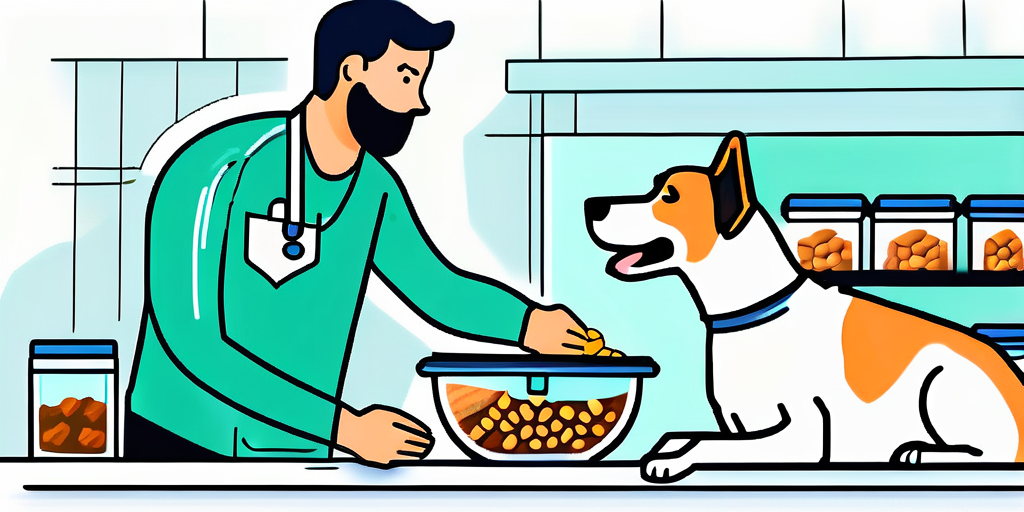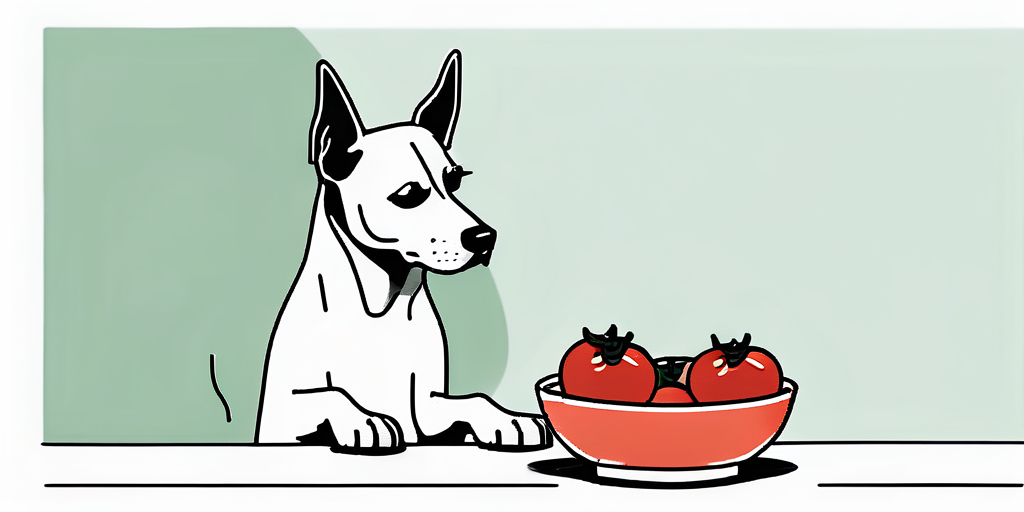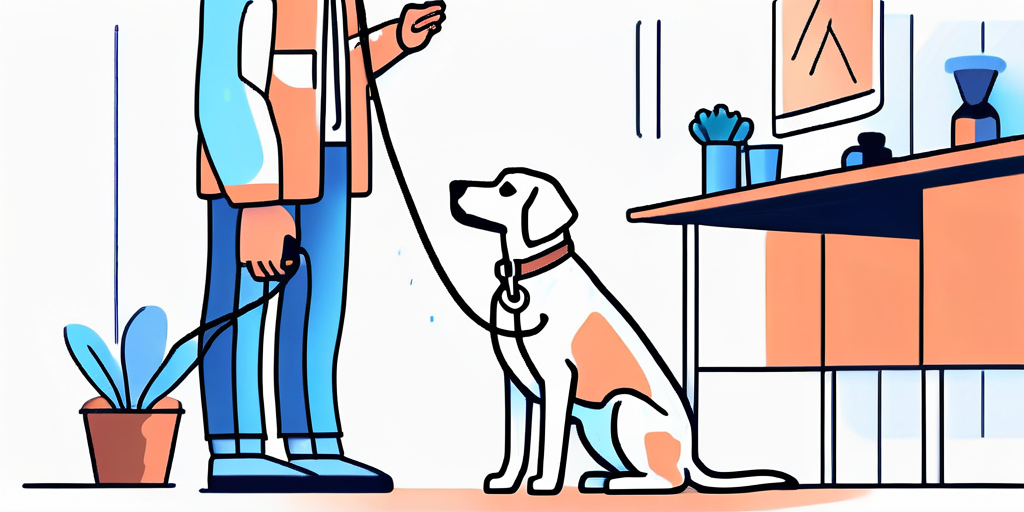Many pet owners wonder whether it is safe for dogs to eat tomatoes. As a responsible dog owner, it is essential to understand a dog’s dietary needs and potential risks involved in feeding certain foods. In this article, we will explore the topic of dogs consuming tomatoes, including their nutritional content, potential health benefits, associated risks, and safe ways to include tomatoes in a dog’s diet. It is important to note that while this article provides valuable information, always consult a veterinarian for personalized advice regarding your dog’s specific dietary requirements.
Understanding a Dog’s Dietary Needs
Dogs have unique digestive systems that differ from humans. Their bodies have evolved to thrive on a diet primarily consisting of animal-based protein, fats, and carbohydrates. Their digestive system is shorter, and they lack certain enzymes needed to process certain foods effectively.

The Canine Digestive System
The canine digestive system starts with the mouth, where dogs grind their food before swallowing. From the mouth, the food travels down the esophagus and into the stomach, where it undergoes further breakdown through the stomach acids. The partially digested food then moves into the small intestine, where nutrient absorption takes place. Finally, the remaining waste passes through the large intestine and is excreted as feces.
It’s fascinating to note that a dog’s digestive system is designed to handle raw food more efficiently than cooked food. Raw food retains its natural enzymes, which aids in digestion. Additionally, the chewing process in dogs not only breaks down food into smaller pieces but also stimulates the production of saliva, which contains digestive enzymes. This saliva plays a crucial role in the initial breakdown of carbohydrates.
Essential Nutrients for Dogs
Dogs require a balanced diet containing protein, fats, carbohydrates, vitamins, minerals, and water to stay healthy. The precise amounts of these nutrients may vary based on factors such as age, size, activity level, and overall health. Providing a nutritionally complete and balanced diet is crucial for promoting overall well-being in dogs.
Protein is one of the most important nutrients for dogs as it plays a vital role in muscle development, repair, and overall growth. High-quality animal-based protein sources such as chicken, beef, and fish are highly recommended. Fats, on the other hand, provide a concentrated source of energy and help maintain healthy skin and coat. Sources of healthy fats include fish oil, flaxseed oil, and chicken fat.
Carbohydrates are another essential nutrient for dogs, providing energy and fiber. While dogs don’t require as many carbohydrates as humans, they still benefit from a moderate amount in their diet. Good sources of carbohydrates for dogs include whole grains, fruits, and vegetables. It’s important to note that dogs have a limited ability to digest complex carbohydrates, so it’s best to opt for easily digestible options.
The Nutritional Content of Tomatoes
Tomatoes are a common ingredient found in many human dishes and are known for their vibrant color and distinct taste. However, when it comes to dogs, it is important to consider the nutritional content of tomatoes before incorporating them into their diet.
Vitamins and Minerals in Tomatoes
Tomatoes are not only delicious but also packed with essential vitamins and minerals that can benefit your furry friend. These juicy red fruits are rich in vitamin C, which plays a vital role in supporting a strong immune system in dogs. Vitamin A, another nutrient found in tomatoes, is crucial for maintaining healthy vision and promoting proper growth and development.
Furthermore, tomatoes are a great source of vitamin K, which is essential for blood clotting. This nutrient ensures that your dog’s blood can effectively clot in case of an injury, preventing excessive bleeding. Alongside these vitamins, tomatoes also contain minerals like potassium and folate. Potassium helps maintain proper heart function and muscle contractions, while folate supports the production of red and white blood cells.
Potential Health Benefits of Tomatoes
Including tomatoes in a dog’s diet may provide additional health benefits beyond their nutritional value. Tomatoes are rich in antioxidants, such as lycopene, which can help fight free radicals in your dog’s body. These harmful molecules can cause oxidative stress and damage cells, leading to various health issues. By incorporating tomatoes into your dog’s diet, you can support their overall cellular health and reduce the risk of oxidative damage.
Moreover, the presence of lycopene in tomatoes has been associated with potential anticancer properties. While more research is needed to determine the extent of these benefits specifically for dogs, the presence of this powerful antioxidant in tomatoes suggests that it may contribute to reducing the risk of certain types of cancer in our canine companions.
However, it is important to note that while tomatoes can offer nutritional benefits to dogs, they should be given in moderation. Too many tomatoes can lead to digestive upset, as they contain a compound called solanine, which can be toxic in large quantities. Always consult with your veterinarian before introducing any new food into your dog’s diet to ensure it is safe and appropriate for their individual needs.
Risks Associated with Feeding Tomatoes to Dogs
While tomatoes may offer some potential health benefits, there are also risks associated with feeding them to dogs. It is crucial to be aware of these risks to make informed decisions regarding your dog’s diet.

Toxic Components in Tomatoes
Tomatoes belong to the nightshade family, which contains solanine and tomatine, potentially toxic substances. These compounds are primarily found in the stems, leaves, and unripened green tomatoes. While ripe tomatoes contain low levels of solanine and tomatine, it is still advisable to remove the stems and green parts before feeding tomatoes to dogs.
Potential Allergic Reactions
Some dogs may have allergies or sensitivities to tomatoes. Signs of an allergic reaction may include itching, skin irritations, gastrointestinal disturbances, or respiratory issues. If you suspect your dog is allergic to tomatoes, consult with a veterinarian to determine the best course of action.
Furthermore, it is important to note that not all tomatoes are created equal. There are various types of tomatoes, such as cherry tomatoes, beefsteak tomatoes, and heirloom tomatoes, each with their own unique characteristics and nutritional profiles. When considering feeding tomatoes to your dog, it is essential to choose the right type that aligns with their dietary needs and preferences.
In addition to the potential toxic components and allergic reactions, another risk associated with feeding tomatoes to dogs is the presence of pesticides. Conventionally grown tomatoes often undergo pesticide treatments to protect them from pests and diseases. These pesticides can pose a risk to your dog’s health if ingested. Therefore, it is advisable to opt for organic tomatoes or wash conventionally grown tomatoes thoroughly before feeding them to your furry friend.
Safe Ways to Include Tomatoes in a Dog’s Diet
If you decide to feed tomatoes to your dog, it is important to do so in a safe and controlled manner to minimize potential risks.
Tomatoes are a delicious and nutritious addition to any dog’s diet, but it’s essential to take a few precautions to ensure your furry friend stays healthy. Here are some additional tips to help you safely incorporate tomatoes into your dog’s meals:
Preparing Tomatoes for Your Dog
When preparing tomatoes for your dog, ensure that you remove the stems, leaves, and green parts. These parts can be difficult for dogs to digest and may cause gastrointestinal issues. Additionally, you should always wash tomatoes thoroughly to remove any pesticides or chemical residues that may be present. By doing so, you can provide your dog with a clean and safe tomato treat.
It is advisable to offer ripe tomatoes rather than unripened green ones. Ripe tomatoes are easier for dogs to digest and contain higher levels of beneficial nutrients. The vibrant red color of ripe tomatoes indicates that they are packed with essential vitamins, such as vitamin C and vitamin A, which can contribute to your dog’s overall well-being.
Portion Sizes and Frequency
Moderation is key when feeding tomatoes to dogs. Start by offering small amounts of tomato as a treat or mixed with their regular food. This way, you can gauge how your dog reacts to the new addition. Monitor your dog for any adverse reactions, such as upset stomach or diarrhea. If your dog tolerates tomatoes well, you can gradually increase the portion size.
However, it is important to avoid overfeeding tomatoes as they are relatively high in natural sugars. While these sugars are not harmful in small quantities, excessive consumption can lead to weight gain and other health issues. As a responsible pet owner, it’s crucial to strike a balance and ensure that tomatoes are just one part of a well-rounded and balanced diet for your furry companion.
When to Consult a Vet
While tomatoes are generally safe for dogs, it is crucial to be aware of potential signs of toxicity or allergic reactions. If you notice any concerning symptoms, it is recommended to consult a veterinarian for guidance.

Signs of Tomato Toxicity in Dogs
If a dog consumes excessive amounts of green tomatoes or unripened tomatoes, they may experience symptoms such as gastrointestinal upset, vomiting, diarrhea, or lethargy. If you suspect tomato toxicity, seek veterinary care immediately.
Seeking Professional Dietary Advice for Your Dog
Every dog is unique, and their dietary needs may vary based on several factors. If you have specific concerns or questions about incorporating tomatoes or any other food into your dog’s diet, it is always best to consult with a veterinarian. They can provide personalized advice based on your dog’s individual needs and help you make informed decisions regarding their nutrition.
Remember, while tomatoes may offer some potential benefits, they should not replace a nutritionally balanced diet specifically formulated for dogs. A veterinarian-approved diet is the best way to ensure your dog’s overall health and well-being.
